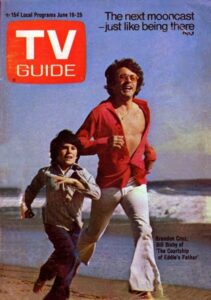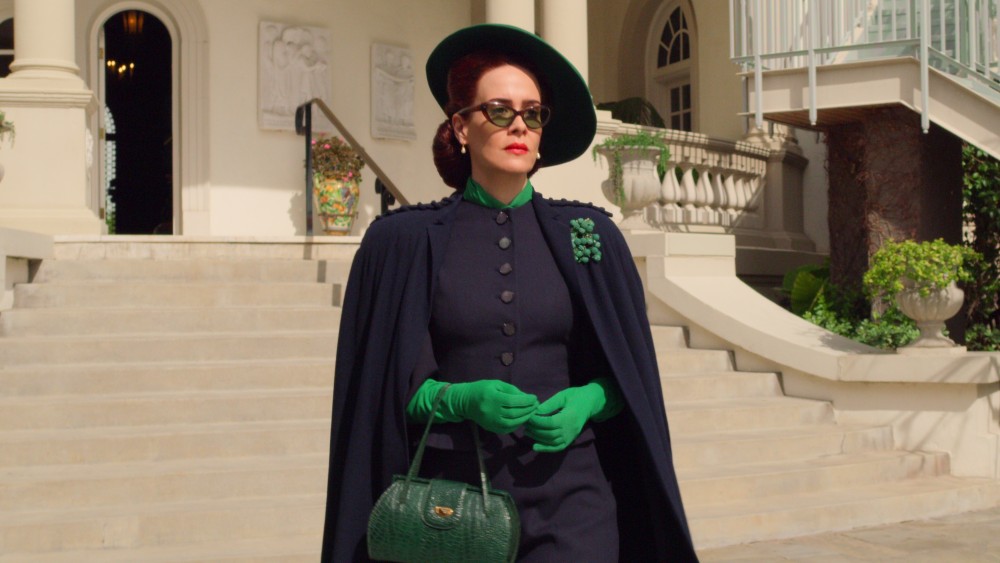
The concept of turning a movie into a TV show, or spinning off a TV show from a movie, is not new. It goes back decades, to before many of us were even born. In the 1960s alone, just off the top of my head, were Peyton Place and The Courtship of Eddie’s Father. The reruns of the former never really played in the 1970s, when I was a kid, but the latter sure did, with a pre-Incredible Hulk Bill Bixby as the titular dad.
It wasn’t until much later that I learned that this silly show I’d sort of watched as a kid, when I was bored, there was nothing else on, and I was out of books to read, had been a movie first. But then, there were plenty of examples in the ‘70s and ‘80s, of studios that tried to capitalize on the success of a film by turning it into a TV property. Did you know, for instance, that 9 to 5 was not just a monster hit in the cinemas, it was also a sitcom starring Rita Moreno? Or that the show Delta House was a small screen version of Animal House? Or that there was actually a Serpico TV show?
I actually knew about the first two, but not the third one. A Serpico TV series actually sounds pretty cool, but since it lasted just 14 episodes before being canceled in January 1977, audiences at that time clearly didn’t agree.
Then, of course, there’s Alien Nation, Buffy the Vampire Slayer, Highlander: The Series, Honey, I Shrunk the Kids, Lock, Stock … the Series, My Big Fat Greek Life … the list continues, but you get the point. All of these were on TV years ago.
The reason I bring this up is because people have lately taken to calling the most recent battery of such adaptations a trend. I mean, we have Fargo, obviously, and Ratched was a One Flew Over the Cuckoo’s Nest off-shoot and another in a series of shows to come off the Ryan Murphy assembly line, and there are the Marvel shows like WandaVision and The Falcon and the Winter Soldier and Loki and the upcoming Hawkeye and plenty of others, plus The Mandalorian and the Peacemaker series that James Gunn just finished shooting with John Cena, and the upcoming Gotham Police Department show that’s a spinoff of next year’s The Batman, which they are now calling Arkham, and of course there’s Amazon’s Lord of the Rings series coming next year, and on and on.

So if it certainly feels like there are more of them lately, you’re probably not wrong, but I still don’t think I would call it a trend. I think I would instead call it the New Reality, and even then, there’s a lot more to it than that, plenty of it scary.
To the first part, this is just the pop culture world in which we live. It’s all about Intellectual Property (or IP, for the uninitiated), and anything that will make it simpler to sell to a viewing public. Name recognition, in one form or another, is everything these days. If you can somehow make it easier to get yourself in front of viewers without having to explain too much, that’s an easy move to make.
It’s why we’re seeing fewer and fewer original ideas in the movie theater, and why there is more and more franchise fare everywhere you look. Translation: if you think this “trend” is ending any time soon, I have some land to sell you in Zimbabwe.
Which leads to the other part of it, the scarier part, which is where we’re likely headed and how it affects you.
I have said for a long time — much longer than I’ve had this particular platform — that as powerful as Netflix is, its strategy to keep piling on debt and using continued subscriber growth to offset it is ill-conceived at best, and disastrous at worst. Yes, it is currently winning the Streaming Wars, but the numbers have begun to level off, and unless it has a plan of which I am not aware to escape this crushing debt, there is an almost certain fall coming at some point in the not too distant future. Disney is in a different circumstance with its own service, but the company’s actions could be having the same net effect.
That is, continuing to dilute a viewership by cannibalizing its properties. Netflix doesn’t do this as much as Disney and HBO Max, but that’s only because it doesn’t possess the same wealth of characters the others do. The comic book worlds owned by Disney (Marvel) and HBO Max (DC) alone are more than just about all other properties combined, but make no mistake, if Netflix could do it, it would. Anything to have a trove of its own established characters with which to work, and stave off the inevitable plateauing of subscribers, something that is already underway.
Does this mean a consolidation of streaming services? Maybe. Not immediately, but with the studios being swallowed up by each other, it makes sense that the streamers might start to consume each other, too — for instance, I absolutely believe that Apple is going to buy one of these suckers at some point, maybe Netflix, and thus exponentially increase its power in the game — which would probably hit you where it matters most: your wallet.
But there’s another aspect to this that is also rather important, and I don’t necessarily think it’s being done consciously by the companies doing it, especially Disney and HBO Max.
By continuing to put out all these shows based on the same IP as the movies they’re putting in theaters, they are essentially training their audience to no longer need the big screen experience. Why go to the theater to see Wonder Woman 1984 or Black Widow, after all, if you can watch it on the big screen at home? Thus, they are not only hurting the movie business as a whole, they are essentially cutting off an entire revenue stream. Now, that second part may not concern you too much, which is fine, but it should concern you that the studios tasked with making movies — and with those movies, the continued employment of tens of thousands of people — are putting themselves in the position that it’s no longer in their best interest to do so.
That, my friends, should be very scary indeed.
 Neil Turitz is a journalist, essayist, author, and filmmaker who has worked in and written about Hollywood for nearly 25 years, though he has never lived there. These days, he splits his time between New York City and the Berkshires. He’s not on Twitter, but you can find him on Instagram @6wordreviews.
Neil Turitz is a journalist, essayist, author, and filmmaker who has worked in and written about Hollywood for nearly 25 years, though he has never lived there. These days, he splits his time between New York City and the Berkshires. He’s not on Twitter, but you can find him on Instagram @6wordreviews.
You can read a new installation of The Accidental Turitz every Wednesday, and all previous columns can be found here.





